BIOGRAPHY
| Obama, Barack | Renegades |
| Weiwei, Ai | 1000 years of joys and sorrows |
| Williams, Angela | Snakes and ladders |
 1000 Years of Joy and Sorrow by Ai Weiwei
1000 Years of Joy and Sorrow by Ai Weiwei
The artist and social activist explores his father’s turbulent relationship with the early Communist regime and his own struggle for creative freedom. Spurred by his imprisonment in 2011 for “economic crimes” against the authoritarian Chinese government, Ai Weiwei (b. 1957) uses his father’s heartbreakingly difficult life as a point of departure to tell his own story. Born in 1910, just as the Qing dynasty was collapsing, Ai Qing was part of the new idealistic proletariat, trained as an artist and schooled for a year in Paris before taking his place as part of the increasingly ideological cultural force in the new Communist China. But Mao Zedong unleashed waves of political upheaval, and just when the author was born, Ai Qing was exiled during the so-called Anti-Rightist campaign. Most miserably, during the Cultural Revolution, father and sons were sent to “Little Siberia,” on the edge of the Gurbantünggüt Desert, where they lived in “a square hole dug into the ground, with a crude roof formed of tamarisk branches and rice stalks, sealed with several layers of grassy mud.” Still, his father’s indomitable spirit remained intact, and under Deng Xiaoping’s leadership, the family was able to return to Beijing. At this point, the author segues into his own restless seeking. He spent more than a decade in New York City before returning to Beijing to try his hand at curating art shows, designing architecture (he consulted on the “Bird’s Nest” stadium for the 2008 Olympics), and engaging in social activism (Black Cover Book). The author eventually ran afoul of the party leadership for his “intolerable insolence,” but the tenacity of his father and his artistic vision have always guided him. “In China,” he writes, “we were still living in a culturally impoverished era, but art had not abandoned us—its roots were deeply planted in the weathered soil.” Throughout, the author maintains a fluid, heartfelt narrative. A beautiful and poignant memoir demonstrating perseverance and the power of art. Kirkus Review, September 2021
 Renegades by Barack Obama
Renegades by Barack Obama
A richly illustrated companion to the duo’s podcast. It was Obama, writes Springsteen, who approached him with the idea that they host a podcast together. “Okay, I’m a high school graduate from Freehold, New Jersey, who plays the guitar….What’s wrong with this picture?” Springsteen recalls. He overcame his shyness, fortunately, and the two came together in 2020 for a series of conversations that ranged from shared love for music and cool cars—at one point, the two flee Springsteen’s spread for the beach, the Secret Service hot behind them, with Obama saying of the getaway car, “It’s smooth, man. Smoother than I expected”—to pensive observations on the state of the nation and the world. Obama lets his freak flag fly, with enthusiasms over such things as the Average White Band, funky albeit all-White and Scottish, while Springsteen has frequent opportunities to take philosophical turns. “I believe that I am involved in a ridiculous but noble profession,” he says, “and that music had an impact on me, changed my life, changed who I thought I was, changed who I became.” Few of the world’s problems were solved in the course of their discussions, but the authors point the way in such matters as positive race relations, an icon for which was Springsteen’s friendship with late band mate Clarence Clemons, as witnessed on the cover art for Born to Run. The discourse is at its best when the authors turn into deeply hidden corners, as when they discuss being the sons of absent fathers, with Springsteen allowing that much of his working-class persona is borrowed from his: “My entire body of work, everything that I’ve cared about, everything that I’ve written about, draws from his life story.” A summary of the book’s spirit comes when the former president issues a call to action that’s nicely rock ’n’ roll: “Stir. Shit. Up. And open up new possibilities.” A pleasure for fans of both Springsteen and Obama and a fine affirmation of true American values. Kirkus Review, December 2021
Return to top
GENERAL FICTION
| Boschwitz, Ulrich Alexander | The passenger |
| Burnet, Graeme Macrae | Case study |
| Cumming, Charles | Judas 62 |
| Enriquez, Mariana | The dangers of smoking in bed |
| Fuller, Claire | Unsettled ground |
| Hadfield, Chris | The Apollo murders |
| Jones, Cherie | How the one-armed sister sweeps her house |
| Lukins, Robert | The everlasting Sunday |
| Pippos, Andrew | Lucky’s |
| Riley, Gwendoline | My phantoms |
| Ruiz Zafón, Carlos | The city of mist |
| Sims, Jonathan | Thirteen storeys |
| Tucker, Nancy | The first day of spring |
| Watts, Madeleine | The inland sea |
| Wood, Daniel Davis | At the edge of the solid world |
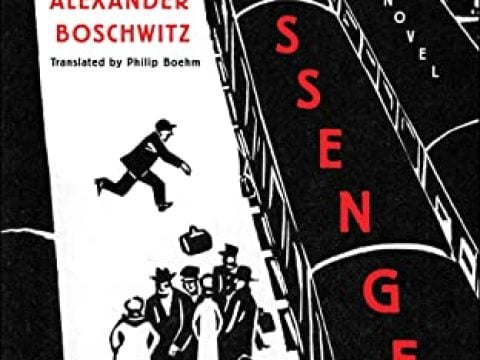 The Passenger by Ulrich Alexander Boschwitz
The Passenger by Ulrich Alexander Boschwitz
A newly rediscovered masterpiece set in the days following Kristallnacht. When pounding erupts at the front door of his Berlin apartment with voices crying out for his arrest, Otto Silbermann escapes out the back. It’s Kristallnacht, 1938, and Silbermann, a wealthy, respectable, and—crucially—Jewish businessman doesn’t know where to go. He takes a train, and then another. He goes from Berlin to Hamburg and then back to Berlin. He goes to Aachen and Dresden and Berlin once again. Days pass, and Silbermann is still on a train. His name is recognizably Jewish, so he avoids using it—no hotels for Silbermann, with their registration forms—but his face is not, and his bearing is so upright and respectable he doesn’t seem particularly suspect. Still, he’s in constant danger of arrest. In its dark absurdity, Boschwitz’s brilliant novel recalls Kafka, particularly The Trial, in which threat looms like an edifice—and yet, reading, you’re also struck by a panicked, choking laughter. And like Tolstoy’s Ivan Ilyich, Silbermann thinks that by clinging to the last vestiges of middle-class life, he can avoid or outpace death. “Am I traveling?” Silbermann wonders. “No! I’m stuck in the same place, like a person who takes refuge in a cinema where he sits in his seat without moving as the films flicker away—and all the while his worries are lurking just outside the exit.” Then, too, the story behind the novel’s publication is almost as intriguing as the novel itself. Boschwitz, who was half Jewish, was only 23 when he wrote the book; he died in 1942 on a transport ship traveling from Australia to England under German bombardment. The novel briefly appeared in Britain and the United States but never in the German original. In 2015, it was rediscovered by chance. Boschwitz is remarkable not only for his prescience—the novel might be one of the very earliest depictions of the aftermath of Kristallnacht—but also for his rare insight and minutely observed depictions of characters from every strata of German society. Witty at the same time that it’s tragic, surreal even in its hyper-reality, Boschwitz’s novel is a remarkable achievement. Kirkus Review, May 2021
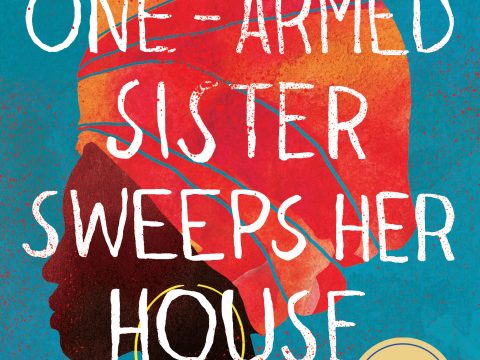 How the One-Armed Sister Sweeps the Floor by Cherie Jones
How the One-Armed Sister Sweeps the Floor by Cherie Jones
The only people enjoying themselves in Paradise are the tourists—at least the ones who haven’t been murdered. Barbadian author Jones’ harrowing debut is set on a fictional strip of Caribbean shore called Baxter’s Beach in the town of Paradise. It opens with a fable told by Wilma to her 13-year-old granddaughter, Lala, about the nasty fate of a girl who didn’t listen. “Curiosity kill the cat, says Wilma, don’t make yourself stupid like the one-arm sister.” This gambit backfires—when we next see Lala, she’s 18, very pregnant, in horrible pain, and bleeding “blurry poinsettia flowers everywhere” in a rickety beach shack. She stumbles to the nearest neighboring house, a fancy villa, presses the doorbell, and hears gunshots inside. She has interrupted her baby’s father, Adan, midrobbery, and he’s had to shoot his victim. It’s the man’s own fault, says Adan. And Lala’s fault what he does to her, what will happen to their baby, to their friend Tone—yet he’s the one who has been torturing animals since he was a boy. In fact, Adan is one of the most repellent and unredeemed villains we have encountered in quite some time. Lala has pretty much figured it out—”Maybe it is time to accept that this man is not the laughing giant you meet riding a unicycle at a fair two summers ago”—but still cannot escape him. He won’t let her work—she’s a braider on the beach, a job she loves—and has stolen what little money she has. The novel moves among the perspectives of several characters, including Mira Whalen, the widow of the murdered man. Mira is a former prostitute whose tourist client left his wife for her; Adan’s crime severs her from the amazing life she lucked into, with homes in England and here on the beach, with sweet stepchildren, friends, and travel, and the only conjugal love and happiness evoked in the entire novel. A compelling and terribly sad story of lives defined by trauma generation after generation. Kirkus Review, November 2020
 The Inland Sea by Madeleine Watts
The Inland Sea by Madeleine Watts
An unnamed protagonist watches Australia burn as her body burns along with it. With an almost bored detachment, a recent college graduate and aspiring writer working at a Triple Zero call center (Australia’s version of 911) lists the crises she transfers to emergency agencies: “An old man with chest pains…a woman hiding from her ex-boyfriend under the bed, and a mother whose baby had turned blue.” This aura of detachment doesn’t mean the narrator is callous but instead points to a central tension running through the novel: the narrator’s desire to be separate from a body that feels too much. Watts plays with this idea of dissociation by creating a heroine who writes to the reader from a future vantage point without ever revealing her own name (and giving pseudonyms to everyone in her life). Nevertheless, the reader is invited to witness the intimate moment when the blood clots slide down the narrator’s leg in the shower after she has an abortion. This abortion and the man who impregnated her usher in a series of events that violently echo Australia’s burning landscape. The narrator continuously endangers her body through unprotected sex with strangers, overindulgence in alcohol, and ill-advised swims in riptides; meanwhile, her mind seems to be playing catch-up: “I became aware of a sound that I discovered was being issued from me. A howl.” People around her experience disasters, and she keeps herself outside. She goes through trauma, and she doesn’t know she’s the one screaming. Magnificently uncomfortable. Kirkus Review, November 2020
Return to top
HISTORICAL FICTION
| French, Jackie | No hearts of gold |
| Penner, Sarah | The lost apothecary |
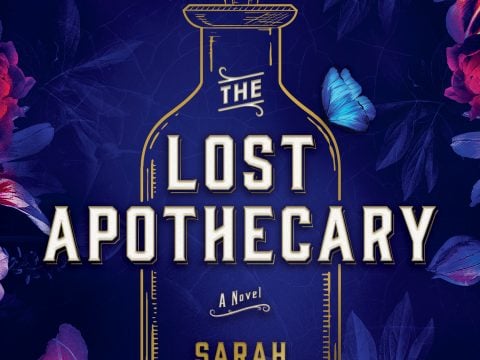 The Lost Apothecary by Sarah Penner
The Lost Apothecary by Sarah Penner
In Penner’s faltering debut, a contemporary American woman uncovers a clue to a series of unsolved murders in 18th-century London. After Caroline Parcewell learns her husband, James, is having an affair, she flies alone from Ohio to London on what was meant to be their anniversary trip. There, she finds a glass vial in the Thames. Her research on the bear etched on the bottle turns up newspaper articles about the suicide of a woman known as the London “Apothecary Killer” in 1791, and leads her to the site of the woman’s shop. Penner switches from Caroline’s sleuthing to the story of the apothecary, Nella Clavinger, who gave poison to women to use on men who wronged them in various ways. Back in the present, Caroline contends with James showing up and getting accidentally poisoned after trying to win her back. Penner’s story starts strong but peters out as the engaging premise gets muddled in convenient plot turns, though the author does a good job of making two disparate stories into eventual foils for one another. This has a few things going for it, but in the end it fails to cast a spell. Publishers Weekly, February 2021
Return to top
MYSTERY
| Barrie, Sarah | Unforgiven |
| Finch, Charles | The laws of murder |
| Grebe, Camilla | The hideout |
| Holt, Anne | A memory for murder |
| Horst, Jorn Lier | A question of guilt |
| Marsons, Angela | Stolen ones |
| Martin, Faith | Murder in the village |
| McGowan, Claire | I Know You |
| Mullen, Thomas | Midnight Atlanta |
| Norman, Charity | The secrets of strangers |
| Quintana, Jenny | The hiding place |
| Siguradottir, Yrsa | The doll |
| Walker, Martin | Bruno’s Challenge & Other Dordogne Tales |
| Weaver, Tim | The shadow at the door |
| Yokomizo, Seishi | The Village of Eight Graves |
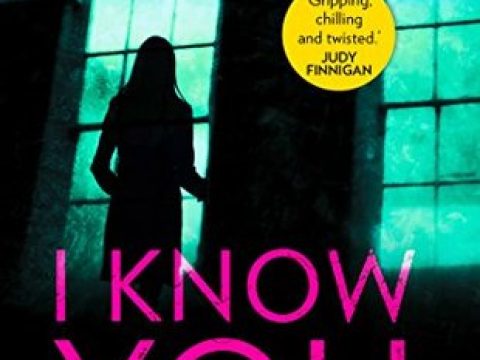 I Know You by Annabel Kantaria
I Know You by Annabel Kantaria
A lonely woman’s efforts to find friendship reveal the nasty underbelly of social media. Heavily pregnant Taylor Watson has moved from California to London with her British husband, Jake, in an attempt to heal their marriage after his affair. Taylor finds it hard to forgive Jake, especially since his travels for his job often leave her alone. In an effort to make new friends, she joins a walking group, where she meets Simon, an ethical hacker who works out of his home as he takes care of his aging father. Simon’s a bit odd but seems harmless. A more appealing potential friend is Anna Jones, who’s also pregnant and who has a husband off working in Qatar. Taylor helps Anna decorate her rather sad apartment, and they begin to spend more time shopping and lunching together. When Taylor’s neighbor Sarah asks her to join a book group, she brings Anna along to meet the other member, Caroline Hughes-Smith, who went to school with Jake. Sarah, setting her cap for Jake, uses the excuse of arranging a birthday party for Taylor for a night out with him, arousing Taylor’s suspicions. Interspersed chapters present the thoughts of an unidentified person stalking the hated and despised Taylor online, where both she and Anna overshare details of their lives. Meantime, Anna insists she’s being watched, perhaps by the person who dropped a baby rattle through her mail slot in the dead of night. She confesses that she’s feared the unknown ever since her roommate was raped and murdered while Anna slept. In Jake’s absence, Taylor relies more and more on Anna, who feeds her doubts about Jake and Sarah. When a crisis arises, the agonized Taylor can’t decide whom to trust. Kantaria (The One that Got Away, 2017, etc.) has produced a psychological thriller that will make your hair stand on end as you join her heroine in guessing which of her new friends is really her deadly enemy. Kirkus Review, April 2019
 The Village of Eight Graves by Seishi Yokomizo
The Village of Eight Graves by Seishi Yokomizo
Set in 1950s Japan, this taut mystery from Yokomizo (1902–1981) provides an original variation on the plot of The Hound of the Baskervilles. Tatsuya Terada, a cosmetics company employee in his 20s who believes he has no surviving relatives, hears a radio announcement asking anyone who knows of his whereabouts to contact an attorney. He subsequently learns that an unknown, unnamed wealthy relative wants to adopt and provide for him. Tatsuya then gets an anonymous warning to “never set foot in the village of Eight Graves again,” lest it “become a sea of blood.” A curse was placed on the village in 1566 by the leader of a group of eight samurai killed by its residents. His vow of vengeance apparently manifested itself in the 1920s, when a man related to Tatsuya went berserk and slaughtered more than 30 villagers. Tatsuya agrees to return to Eight Graves, triggering a series of baffling murders. Kosuke Kindaichi, Yokomizo’s Columbo-like sleuth, arrives to sort through the tangled puzzle and provide a satisfying solution. Fans of gothic-tinged fair play will be enthralled. Publisher’s Weekly, November 2021
Return to top
NON FICTION
| Altman, Dennis | God save the Queen |
| Beard, Mary | Twelve Caesars |
| Giggs, Rebecca | Fathoms |
| Rovelli, Carlo | Helgoland |
| Watego, Chelsea | Another day in the colony |
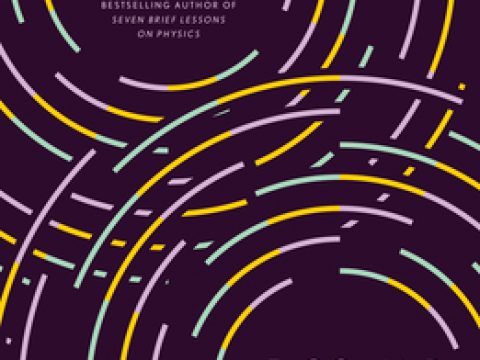 Helgoland by Carlo Rovelli
Helgoland by Carlo Rovelli
The theoretical physicist and bestselling author digs into his discipline’s most confounding concept. As lucidly as he can, Rovelli shows that while quantum theory may clarify the foundations of science, it doesn’t make sense. “Its mathematics does not describe reality,” he writes. “Distant objects seem magically connected. Matter is replaced by ghostly waves of probability.” And yet, it “has never been found wrong.” The author begins with the easy part: the history. Helgoland is a barren island in the North Sea where, in 1925, a young Werner Heisenberg spent the summer trying to explain how electrons behave. The 20-year-old explanation that atoms consisted of tiny electrons whirling around heavier protons—as planets orbit the sun—didn’t work. Electrons don’t whirl like specks of matter but rather in diffuse, cloudlike waves. However, whenever scientists deal with an electron (such as in a particle accelerator), it becomes a speck of matter. After much agonizing, Heisenberg decided not to explain electron behavior but simply describe what happens. The result was a brilliant, if clunky, formulation using mathematical matrixes that correctly predicted what experiments showed. Within a few years, other geniuses (Schrödinger, Pauli, Dirac, Born) refined and simplified Heisenberg’s work, and quantum theory was off and running. After 100 years, scientists still agree that quantum theory remains an enigma, but it works so well that only a persistent minority, Rovelli included, try to make sense of it. In the book’s second half, more philosophy than science, the author maintains that every entity in the universe, from protons to humans, exists only in relation to other objects. Something that didn’t interact would be invisible. Expressing doubt over Ernst Mach’s insistence that science must be based on the “observable,” Rovelli leans toward the Buddhist teaching that “there is nothing that exists in itself, independently from something else.” Often heavy going, but a thoughtful argument that “all nature is quantum” and that we should go with the flow. Kirkus Review, March 2021
Return to top
SCIENCE FICTION & FANTASY
| Lange, Richard | Rovers |
| Roberts, Nora | The becoming |
| Robinson, Kim Stanley | The Ministry of the Future |
| Tchaikovsky, Adrian | Shards of earth |
 The Becoming by Nora Roberts
The Becoming by Nora Roberts
A woman destined to be the bridge between the human and fey worlds prepares for war. This second book of The Dragon Heart Legacy series begins where the first book, The Awakening (2020), left off, with Breen Kelly and her best friend, Marco, jumping through a portal from Philadelphia back to the magical world of Talamh. Breen was born in Talamh and inherited powerful magicks from her fey father; however, Breen’s human mother insisted they leave the magical realm, fearing for the safety of her family. Breen, raised in complete ignorance about her background, was taught to use her magick by Keegan, the handsome leader of the fey. Breen’s return comes at the right time. The people of Talamh sense that Odran, a powerful, villainous god, has been gathering his forces and will soon make another attack on their world before moving on to conquer the rest of the known realms. Odran is her grandfather, and Breen intends to use her magick to stop him while he hopes to steal her abilities to further his own evil cause. Breen’s relationship with Keegan is on hold—his sole focus is teaching her to fight and preparing his people for battle, which leaves little time for romance. Most of the book is consumed with expanding Breen’s understanding of the world and her own abilities. There are multiple subplots about interpersonal relationships: Keegan’s ex-lover will do anything to get him back, Marco falls in love with a handsome young soldier, and Breen strengthens the ties to new friends and family. The characters learn more about themselves and prepare to battle Odran, but too much of the plot feels like filler, keeping readers on the hook for the final confrontation in the last book. Fantasy readers will enjoy the world but might wish that the promised battle was quicker to arrive. Kirkus Review, November 2021
 The Ministry of the Future by Kim Stanley Robinson
The Ministry of the Future by Kim Stanley Robinson
This detail-heavy near-future novel offers a window onto the apocalypse looming just behind our present dystopia. As Uttar Pradesh suffers from a crippling heatwave and blackouts, Frank May, an American aid worker in a small city, runs out of options to help the local residents stay cool and suggests that they go into the lake, which unfortunately offers very little relief. He rouses from an uneasy night submerged in the water to discover that everyone is dead but him, a devastating outcome that leaves him with PTSD and a desire to do something, anything, to reverse climate change. But as Frank is the quintessence of the ineffectual White American savior—not equipped to save anything or anyone, even himself—he doesn’t have the first idea about how to pursue his goal. His bumbling and his anger drive him to a failed kidnap attempt on Mary Murphy, head of the titular Ministry for the Future, a U.N. agency formed in 2025 to further the aims of the Paris Agreement. Frank drifts through years as a fugitive and then as a convicted felon, Mary works tirelessly through diplomatic and bureaucratic channels to save the planet before it’s too late, and the Children of Kali, a group of eco-terrorists also inspired by the Indian heatwave tragedy, pursue more violent—and shockingly effective—methods of combating environmental destruction. These strands initially form the basis of a gripping story, but they’re diffused by Robinson’s determination to narrate a history of an alternate future timeline, one which naturally excludes our present pandemic and the latest crackdowns in Hong Kong but also apparently ignores the U.S. dropping out of the Paris Agreement and the implications of Brexit. That tale, or more often lecture, is conveyed through dry and snarky infodump essays and brief, punchy accounts from people, inanimate objects, and metaphorical forces. Perhaps the author is angry that though he’s spent years writing novels exploring the dire results of climate change, the message doesn’t seem to have gotten through; it’s clear that he is unhappy at how politics and greed have obstructed opportunities for positive environmental action. At the same time, he seems hopeful that the world can still forge a path forward, if only we have the resolve. High-minded, well-intentioned, and in love with what Earth’s future could be but somewhat lacking in narrative drive. Kirkus Review, September 2020
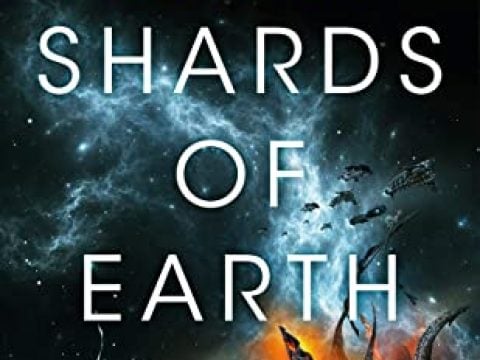 Shards of Earth by Adrian Tchaikovsky
Shards of Earth by Adrian Tchaikovsky
Tchaikovsky (Children of Time) launches his Final Architecture series with a dazzlingly suspenseful space opera. A colossal, sentient entity known as an Architect rips Earth apart into a flower shape. As the remnants of humanity flee to colonize other planets, Idris Telemmier is genetically manipulated into an Intermediary supersoldier, capable of reaching his mind out to the Architects. His encounter with the Architects causes them to realize humans are sentient, after which they abruptly vanish. Nearly a century later, Idris, who has not slept or aged since, joins the tight-knit crew of salvage ship Vulture God, craving anonymity among their ranks. After the crew comes across a derelict ship torn into a familiar flower shape, signaling the possibility that the Architects have returned, the discovery creates political opportunity for various factions: the alien Essiel, who protect the worlds under their control; Earth’s Council of Human Interests; the alien-hating human Nativists; and the women warriors known as the Parthenon. Now Partheni Solace joins Idris’s crew to search the colonized worlds for hints to the Architects’ motives. But Solace’s true mission is to convince Idris to share the Intermediary technology with the Parthenon. Tchaikovsky’s intricately constructed world is vast yet sturdy enough to cradle inventive science, unique aliens, and complex political machinations. With a mix of lively fight scenes, friendly banter, and high-stakes intrigue, this is space opera at its best. Publishers Weekly, May 2021
Return to top
New additions to eBooks at SMSA
EBOOKS
| Biography | Ford, Clementine | How we love |
| General novels | Baldacci, David | Mercy |
| General novels | Haran, Meave | A very French wedding |
| General novels | Marrs, John | The vacation |
| General novels | Mercier, Mercedes | White noise |
| General novels | Williams, Shanora | The perfect ruin |
| General novels | Yanagihara, Hanya | To paradise |
| Mystery | Rosenfield, Kat | No one will miss her |
| Mystery | Winstead, Ashley | In my dreams I hold a knife |
| Non fiction | Kishimi, Ichiro | The courage to be disliked |
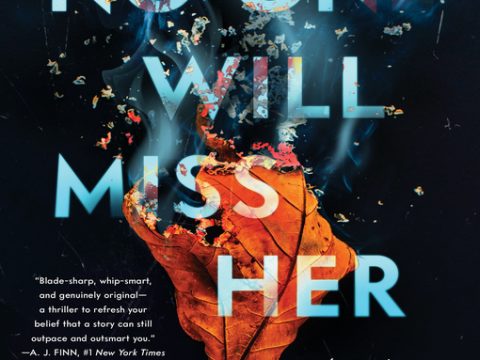 No one will miss her / Kat Rosenfield
No one will miss her / Kat Rosenfield
The murder of Lizzie Oullette, the most hated woman in rundown Copper Falls, Maine, jump-starts this clever, surprising psychological thriller from YA author Rosenfield (Inland). Few people mourn Lizzie, their dislike stemming from her rough background, the only child of the local junkyard’s owner. Instead, the residents of Copper Falls (“not even the yearly influx of tourists could reverse the town’s protracted death from neglect”) are more worried about her missing husband, the prime suspect in Lizzie’s murder, regarded by them as “some kind of hometown hero whose life had been unfairly derailed.” The investigation of Det. Ian Bird of the Maine State Police takes him to Boston to track down Adrienne and Ethan Richards, the wealthy couple who rented the lake house where Lizzie’s body was found. A much-despised disgraced financier, Ethan was never prosecuted for bilking many out of their life savings. Flashbacks reveal how the lives of Lizzie and smug, arrogant Adrienne intersected with fatal results. The superb character-driven plot delivers an astonishing, believable jolt. Rosenfield shines a searing light on issues of classism, jealousy, and squandered potential. Publishers Weekly, 2 August 2021
 The perfect ruin / Shanora Williams
The perfect ruin / Shanora Williams
In sun-soaked Miami, Ivy Hill is plotting her revenge. After years of wondering who destroyed her life, she has finally uncovered the person responsible: Lola Maxwell, a famous philanthropist and queen of social media. Ivy is still young, in her early twenties, but her childhood spent shuttling between different foster homes has made her feel as though she’s lived a hundred years. Her only goal is to ruin Lola’s life as Lola ruined hers. Ivy infiltrates her enemy’s inner circle, with her eye on the woman’s riches and her husband, too, who’s a sexy doctor. But will Ivy succeed in taking Lola down, and will it be worth it in the end? This twisty thriller takes readers into a high-class, sinfully privileged world populated with characters who will stop at nothing for what they want. Williams stretches out the tension as readers wonder what Lola did to hurt Ivy and whether their shared past will be revealed. With diabolical turns and surprises at every corner, it’s an ideal summer read. Booklist, 1 July 2021.
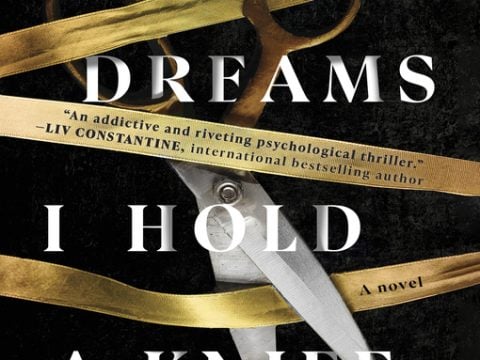 In my dreams I hold a knife / Ashley Winstead
In my dreams I hold a knife / Ashley Winstead
Successful if depressed New York City consultant Jessica Miller, the narrator of Winstead’s captivating debut, decides to attend her 10th reunion at North Carolina’s Duquette University, despite the risk of reopening old wounds surrounding the stabbing murder of Heather Shelby, who belonged to a clique known as the East House Seven, which also included Jessica and Jack Carroll, Heather’s ex-boyfriend. Of the seven, only Jack declines to go, as every other member of the clique, except for Jessica, believes he killed Heather (the murder weapon was found in his room), though he wasn’t convicted of the crime. At the reunion, Heather’s brother, Eric Shelby, who works in the alumni office, takes the opportunity to interrogate Jessica and the others, certain one of them is the murderer. Flashbacks to their undergraduate days reveal deceit and disloyalty as well as Jessica’s romantic and financial struggles. The tension rises as Eric refuses to let the group leave until the truth is uncovered. Winstead does an expert job keeping the reader guessing whodunit. Suspense fans will eagerly await her next. Publishers Weekly, 28 June 2021
Return to top
AUDIOBOOKS
| Biography | Keneally, Thomas | A bloody good rant |
| General novels | Desai, Sara | The dating plan |
| General novels | Huddleston, Molly | Without a hitch |
| Mystery | Amphlett, Rachel | None the wiser |
| Mystery | Bradford, Laura | A plus one for murder |
| Mystery | Lin, Harper | Punch pastries and poison |
| Mystery | Shelton, Paige | Dark night |
| Mystery | Springer, Nancy | The case of the bizarre bouquets |
| Mystery | Stone, Mary | Winter’s end |
| Mystery | Thompson, Victoria | Murder on Gramercy Park |
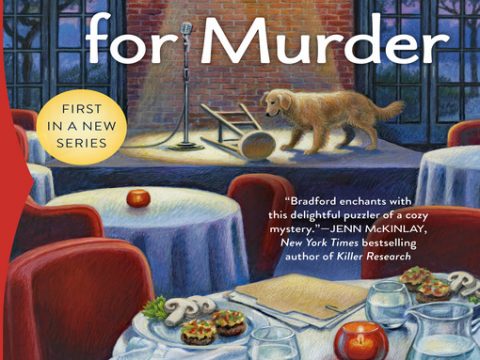 A plus one for murder / Laura Bradford
A plus one for murder / Laura Bradford
Bradford launches a new series about a failing travel agent’s ingenious plan to reinvent herself that goes horribly wrong. The travel industry’s in a funk, and Emma Westlake hasn’t booked a client in months. Her lifeline is her relationship with Dottie Adler. Dottie’s late husband arranged to have Emma paid handsomely for having tea weekly with his frail wife, a task Emma has come to enjoy. Still, Emma’s shocked when Dottie suggests that Emma should recruit other clients to pay for her companionship. While Emma mulls this suggestion, Dottie works the phones. Soon Emma’s agreed to accompany a senior citizen who gives his name only as Big Max to a dance at the local senior center and to serve as exercise buddy to Stephanie Porter, a workaholic who wants to develop a social life. Hoping to expand her pool of clients beyond the ones Dottie has referred, Emma prints up business cards offering her services as a companion for all of life’s plus-one moments. The listing she posts on a virtual community bulletin board nets her first non-Dottie-connected client, Brian Hill, who wants Emma to accompany him to a local club’s open mic night. Unfortunately, the only part of the poetry slam that interests Brian is the slam; before dinner, he shares with Emma a list of prominent people–all present in the room–he plans to insult publicly. Naturally, he falls over dead before he can get started. Emma panics, leaving the room with a list of now-probable suspects, and is faced with an increasingly complicated set of choices when Deputy Jack Riordan, the investigating officer, befriends her and Scout, her adorable puppy. Despite her quirky premise, Bradford ends up hugging a familiar cozy trail. Publishers Weekly, October 2021
 Without a hitch / Molly Huddleston
Without a hitch / Molly Huddleston
Huddleston and Paul’s delightful debut offers a dishy behind-the-scenes tale of Southern wedding planning. Lottie Jones, who is single, started planning her own wedding as a college student before having any proposals, and seven years later, she’s planning other people’s elaborate weddings at Cedric Montclair Celebrations, a glitzy venue in Dallas. A skydiving groom? No problem. Replicate Las Vegas in a Texas Ritz-Carlton? Totally doable. Then Lottie’s college boyfriend Brody Stevens, now an NFL star, and A-list Hollywood actress Harriet Devore become Cedric’s newest clients, and Lottie is charged with planning a wedding with the groom she once thought would be hers. As Lottie works—and juggles two prospective boyfriends, sports agent Matt and wedding photographer Griffin, as well as a possible job promotion—she learns she doesn’t need a man to have fulfillment. Wonderfully over-the-top characters add verve, like the self-made Cedric who changed his name from Clyde as part of an effort to put his humble origins behind him, and the authors reveal the real reason Southern women don’t sweat through their clothes (panty liners in the armpits). This raucous and well-plotted romp will charm any reader with their eye on a pair of Louboutins fit for walking down the aisle. Publishers Weekly, 18 October 2021


